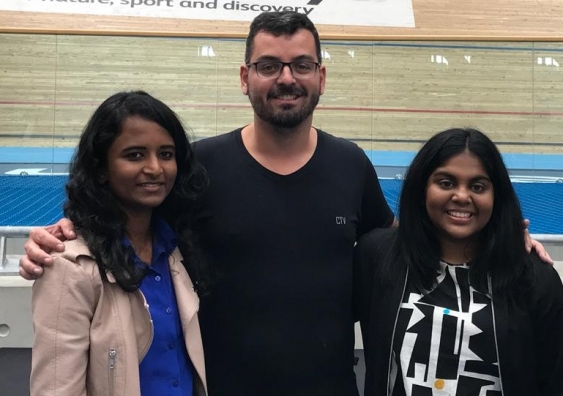UNSW PhD candidate wins future cities challenge in London
A global program to tackle the challenges of increasingly populated urban environments attracted creative thinking from three UNSW PhD candidates.
A global program to tackle the challenges of increasingly populated urban environments attracted creative thinking from three UNSW PhD candidates.

A PhD candidate from UNSW Sydney was part of a global team which pitched the winning concept to improve future cities at a global fellowship program in London in June.
Charishma Ratnam, a geographer in the Faculty of Arts and Social Sciences researching migration with a focus on refugees and asylum seekers, helped her team come up with the idea of a hub which could help alleviate mental health issues in cities.
“The Hub is a multipurpose, affordable and inclusive space made of small shacks that can be changed and added to, based on the needs and desires of the community,” she said.
“Drawing on smart data collected in the future, facial recognition screens at the entrance of The Hub help to understand your mood and then place you within the hub accordingly.“There are areas for businesses and start-ups, community gardens, schools, libraries and exercise facilities such as a gym.”More than 50 PhD students from GlobalTech Alliance universities collaborated in the five-day Global Fellows Program on challenges in increasingly populated urban environments.
UNSW PhD candidates Henrique Benites, an architect researching built environment sustainability, and Malshika Dias, a researcher in information systems at the Faculty of Business, also took part in the program.Benites’ team tackled mobility and transport, by designing an app called TravelUp.“The idea was to foster the use of the most sustainable modes by rewarding the user when choosing the less polluting options, such as walking, subway or electric vehicles,” he said.Dias’ team focused on health by proposing an app called Green R&R (rest and relaxation) which promoted the sharing of green spaces.
“In shared green spaces, people can do various leisure activities including gardening, physical exercises, art and music,” she said.“In the long term, we proposed the city designers build green corridors to connect two green spaces, where humans can walk from one green space to the next.”
As part of their study of environmentally sustainable redevelopments taking place in East London, the researchers also visited one of the world’s most sustainable buildings, The Crystal London; Imperial College London’s new White City campus; and the Emirates Cable Car.
The Division of Research supported the students with a travel award to attend the Global Fellows program and said it valued the representation of PhD students in international network activities.